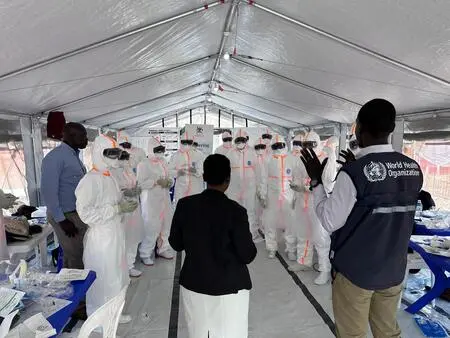
Uganda has officially declared the end of its latest Ebola outbreak, a significant milestone in the country’s fight against the deadly virus. The announcement, made by the Ministry of Health, comes after no new cases were reported for 42 consecutive days, marking the required period for the virus to be considered fully contained.
The outbreak, which began in September, was caused by the Sudan strain of the Ebola virus. It led to a number of infections and fatalities, primarily in the central and western regions of Uganda. The swift and coordinated response from the government, health workers, and international partners played a crucial role in containing the virus.
Key measures included widespread contact tracing, isolation of affected individuals, public health awareness campaigns, and strict quarantine protocols. Health authorities also implemented intensive screening at borders and entry points to prevent further spread.
The World Health Organization (WHO) praised Uganda for its effective response, noting that the country’s previous experience with Ebola outbreaks had significantly contributed to its ability to manage and contain the crisis quickly. WHO also stressed the importance of continued vigilance and preparedness for any future outbreaks.
Despite the successful containment, health experts warn that the threat of Ebola remains, especially in regions with ongoing outbreaks in other parts of Africa. They continue to call for sustained investment in healthcare infrastructure, public health surveillance, and vaccination programs to prevent future epidemics.
The outbreak had significant economic and social impacts, particularly on local communities in the affected regions. Travel restrictions, quarantines, and fear of contagion disrupted daily life, and health services were stretched thin as medical resources were directed toward controlling the outbreak. However, with the declaration of the outbreak’s end, attention is now turning to rebuilding the economy and providing support to communities impacted by the crisis.
While Uganda has successfully managed this outbreak, the government remains committed to strengthening its healthcare system to better respond to future health threats. The end of the Ebola outbreak is a positive development, but Uganda continues to focus on long-term strategies for disease prevention and public health resilience.
In conclusion, Uganda’s declaration marks a significant victory in the fight against Ebola, showcasing the country’s resilience and the importance of quick, coordinated action in addressing infectious disease outbreaks.

